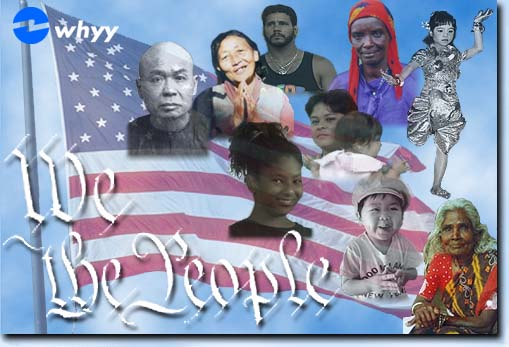|
|
LITR 5731 Seminar in Multicultural Literature: American Immigrant: model assignments 2012
|
|
Munira Omari
July 3, 2012
Assimilation: Is it a Generation Thing?
Coming to America is a very difficult decision, especially for students who come
from very conservative countries like Saudi Arabia. As everyone knows, in Saudi
Arabia the women are given very few privileges; such as no driving, no
traveling alone, no walking alone in the street and no wearing what she pleases
either. Basically, women there are given very little freedom. But what happens
when these women decide to come to America to continue their education? Their
government does not deny them that right, but instead they send them to America
with their husbands, fathers, or brothers and they continue their education. But
what happens to them when they return to their countries? Do they adapt back to
their culture? Or they have difficulty assimilating back?
It is very easy adapting to American culture because it gives the Saudi girls
freedom they did not have in their countries. One student I have has been
studying ESL for a little over a year. She has struggled from month to month
trying to overcome the difficulties of learning English, while at the same time
feeling more and more confident and free to go out with her friends and get her
driver’s license. Her husband did not seem the type that was controlling and he
allowed her to do as she pleased. But one day in an in-class writing assignment,
she had to write about her experiences in America and what truly made her happy.
She wrote a whole essay two pages long about her freedom in American and how
worried she was about returning to Saudi Arabia where she could lose all the
freedom she has now. This idea of assimilation I found has a very similar idea
to objective 2c. of leaving the old world behind and trying to embrace and
accept the old world. This incident with the student reminded me of the text
read in class “The English Lesson” and how Lali wanted desperately get away from
her prison life, make her own choices, and succeed in her future. Lali had chosen
to marry the first man that asked because she wanted to get away from her old
life.
As I interviewed other Saudi students, I happened to see them more and more
Americanized after a while living here. The idea of freedom became a dominant
theme in these students’ lives as they started dating, getting Mohawks and body
piercings. When I asked them “What will happen to you when you return to your
country? Will your family approve of your piercings and Mohawks?” Two students
confidently said to me “we are Americanized. It is difficult for us to go back
to the life we had before after seeing such freedom.” Amazingly, their answers
were similar to the idea of freedom that my female student mentioned above.
Another student named Mohammed said that he wished to marry an American woman
because he so much enjoyed his freedom here. Then, the questions started to
emerge and one of them was, “don’t the men in Saudi Arabia have as much freedom
as you have here?” He replied, “that is true, but we are more ashamed of our
families and what they think than anything else.” It seems that the respect they
have for their families seems what is holding them back from total assimilation
not just in America but also in their home country. As Mohammed started to
answer my questions, I realized that this topic is more than four paragraphs can
handle.
More mentioned in my previous research post about how Muslims are choosing their
religion and home culture than their American culture and that being the reason
for the prolonged assimilation. Somewhat of an answer to the first and second
research post occur through this research; Arab Muslims assimilate differently
when they are from different races and generations. Because in my first research
post, the people interviewed were from Jordan, and in this post Saudis were
being interviewed. For Saudis, the younger generations that have more freedom
and are reacting with Americans are more likely to take on many of the American
culture aspects because they have many influences including the internet and the
television. On the other hand, the older generations and well, the less educated
people are more likely to oppose assimilation and become more attached to their
cultural identity in America or in other countries.
Works Cited
Abdo, Geneive. “Assimilation or Not?” Crossroads Arabia. Aug 29, 2006.
<http://xrdarabia.org/2006/08/29/assimilation-or-not/>
Aldus, Mohammed. Personal Interview. July 2, 2012.
Ajrouch, Kristine.
Assimilating to a White Identity: The
Case of Arab Americans. New York: New York University Press, Vol.41 No. 4,
2007.
Bin Abdu, Isra. Personal Interview. July 2, 2012.


